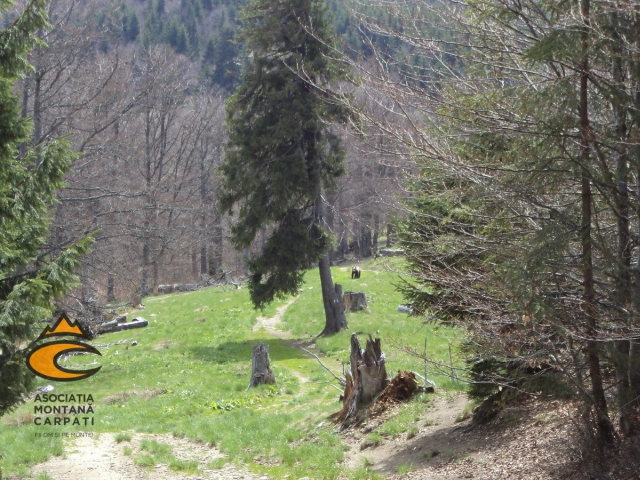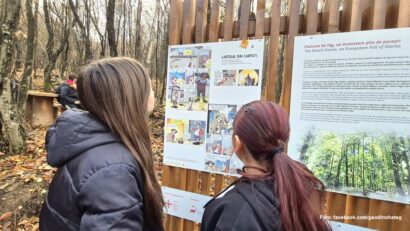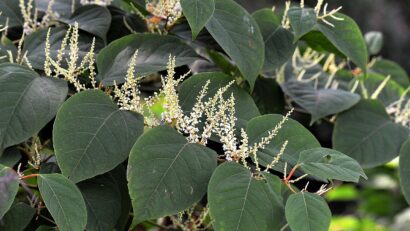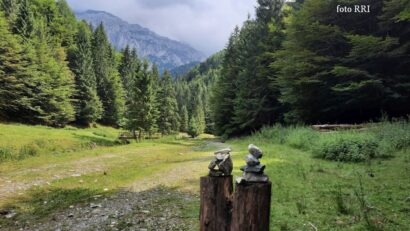Conserving Saproxylic Insects in the Carpathian Mountains
The Carpathian Mountains are some of the most important centers for biodiversity in Europe

Eugen Coroianu, 25.08.2022, 14:05
The Carpathian Mountains are some of the most important centers for biodiversity in Europe, due to their high degree of forestation, and major old-growth forest areas. Unfortunately, as forestry was practiced in Romania in the past, biodiversity was not a central aim of forest management. Many times, old-growth trees or damaged mature trees have been harvested selectively, resulting in forest plots with structure and composition that lacked variety. In other areas, such practices led to the preservation of a very small number of old trees and small quantities of deadwood, putting in danger the species of saproxylic insects that are protected under the Habitat Directive. That is according to the website of the LIFE ROsalia association.
In the past, such species were considered biological pests, and reducing deadwood was done by cleaning it up, by harvesting dried up trees or dying trees, which are colonies of saproxylic insects. In the past, in some situations, there were even insecticide spraying campaigns, which led to reducing the biodiversity of useful insects. Today, things are changing. Here is what we were told about the importance of such critters by Silviu Chiriac, manager of the project called Conserving Saproxylic Insects in the Carpathians:
“These five species of insects that we want to deal with, mostly beetles, are dependent on wood. What these insects do, and the reason they are important for nature, is they decompose wood. Better said, they are in direct relationship with dying trees, they decompose very fast the wood, and that wood enters much faster the natural circuit of the forest. Without these saproxylic insects (because they are not the only ones, we also have fungi that do the same thing), the wood would not decompose, and they would remain dead in the forest for a long time. These decomposing insects are a kind of cleaners, organisms that play a very important role in nature, integrating matter into the natural cycle.
There is a fantastical world that runs its business under the canopy of old-growth forests. Each being has its well established role, and insects are part of this incredible biodiversity. Without it, ecosystems would suffer dramatic changes. Silviu Chiriac told us that conservation measures are paramount:
“Right from the beginning, when we applied for this EC financing, for the Life-Nature program, we had noticed that these forests, in spite of being rather healthy, are lacking very old and large trees, which have many holes, or other features of rotted trees. Since these insects depend on deadwood and these tree holes, we tried to play around with time a bit. We believe that these trees, which often are cut down, could be turned into micro-habitats, with micro-cavities in which these beetles can lay their eggs quickly, turning these into a space insects need in only a few years. For instance, one of these species of beetles depends on large cavities in trees that are rich in what we call red wood dust. Since our forests lack these trees with holes, we though we would make them ourselves, make surrogate tree holes. So we built wood boxes out of soft wood and oak, which we filled with dead leaves, sawdust, and protein powders. Within a few years, those surrogate tree holes stuck to the trees will be undoubtedly colonized by these insects.
This project, implemented in the Vrancea Mountains, is not only significant locally, but scientifically:
“We believe it is very important to understand the habits of these insects, because data is sorely lacking in the scientific literature. It is very important, for example, to understand over what distances these insects travel between colonized trees. And so, for the first time for this neck of the woods in Europe, we acquired radio emitters that weigh only .15 grams. We mounted these emitters on many specimens, and followed them around over the summer, cataloging their habits, and seeing what micro-habitats they depend on. We will aggregate data for a period of 4 years, and in 2025 we will put together a national action plan to conserve these species all over Romania. Basically, the experience we gather here, working with these 5 species in the Carpathian elbow, will be applied by extrapolation to other species. It will be implemented in other Natura 2000 sites and other protected areas where these insects live. They need these and other activities in order to be preserved for the future.
This project is being run in collaboration with the University of Bucharest, namely its Center for Environmental Research and Impact Studies, the Romsilva forest management national administration, the Putna-Vrancea Nature Park Administration, and the Association for the Conservation of Biological Diversity.






























